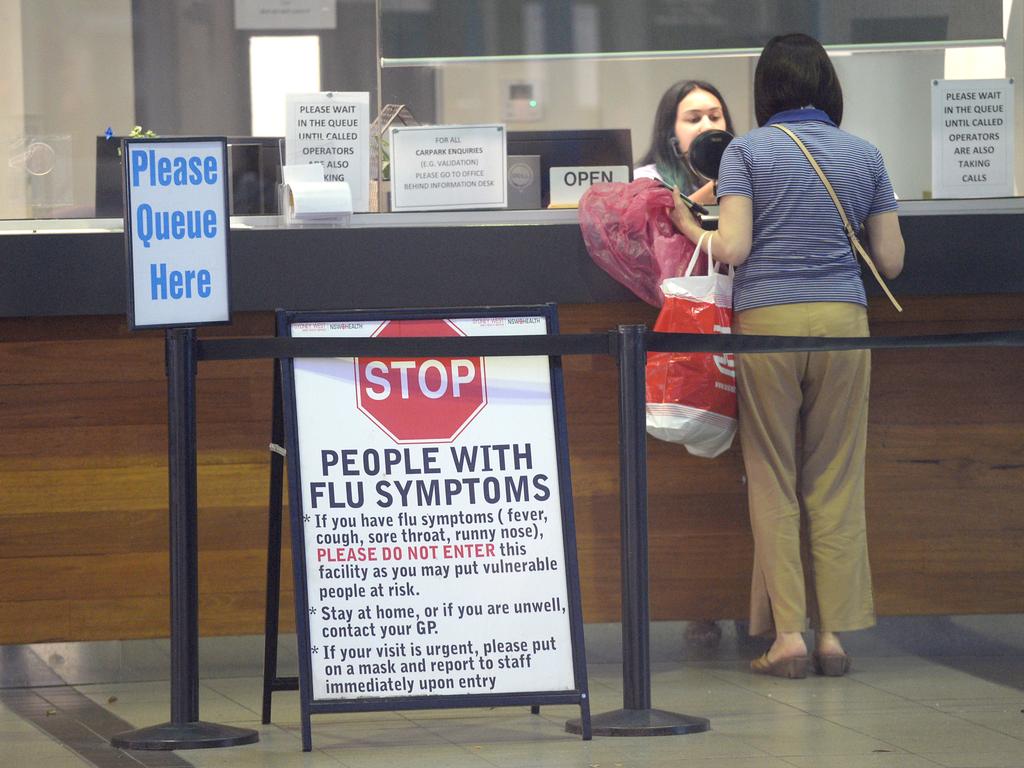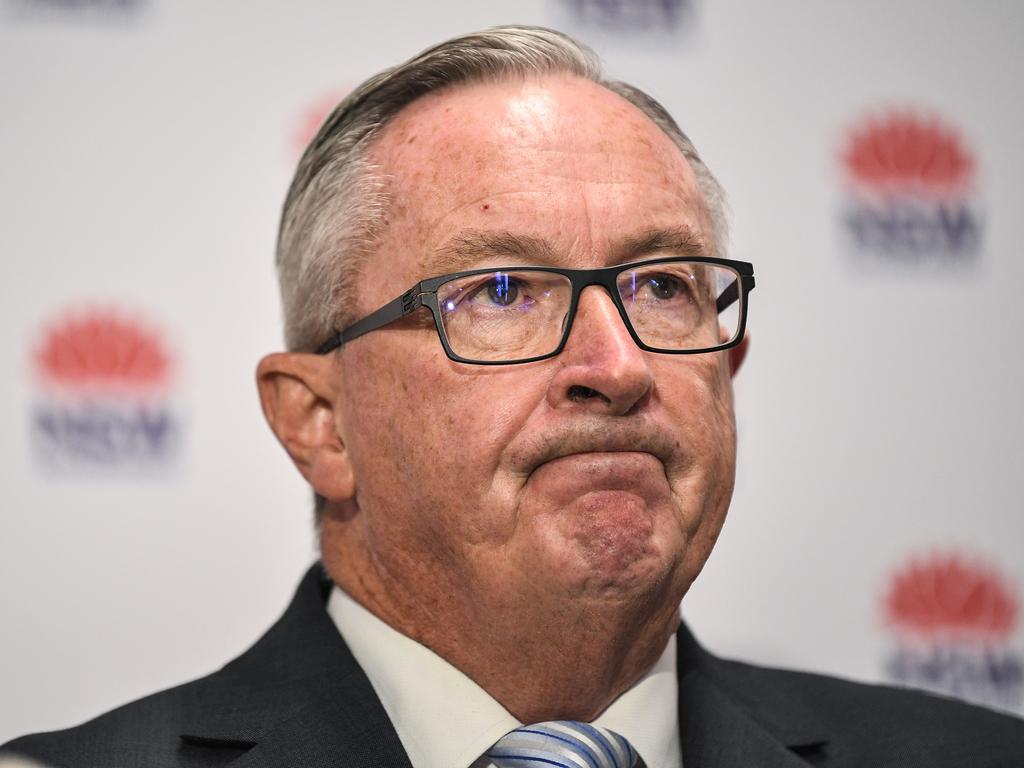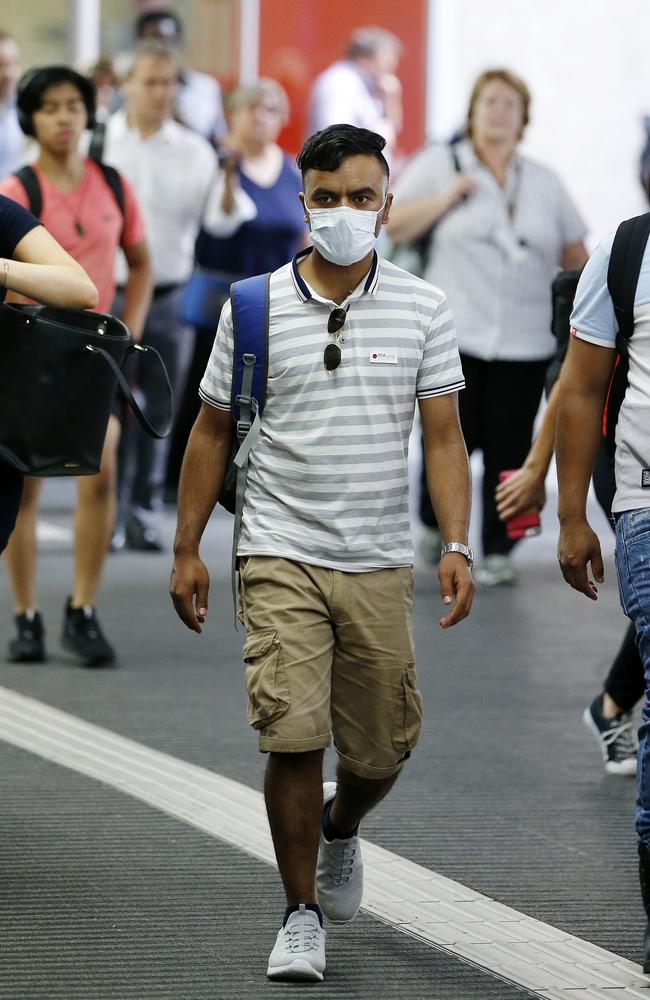‘Challenging times going forward’: Government considers virus social distancing measures
Some important social distancing “powers” may be used for the first time in Australia including putting a stop to mass gatherings.
The nation’s chief health officers will meet today to consider bigger social distancing steps to reduce the coronavirus risk such as cancelling mass sporting events or religious gatherings and school or workplace closures.
Australians were yesterday urged to stop shaking hands and “exercise some degree of caution” when kissing.
The first human-to-human transmission of the coronavirus inside of Australia was also confirmed, with two cases of the virus diagnosed in people who haven’t recently travelled outside the country.
RELATED: Follow our coronavirus updates

Chief Medical Officer, Professor Paul Kelly, told ABC Radio on Monday the country was “into that next phase”.
“We’ve been trying to contain it beyond our borders, we’ve been trying to contain it when we know of certain groups specifically,” he said.
“We just need to be on the lookout now.”
Speaking to reporters, NSW Health Minister Brad Hazzard said it is a “very Australian thing to do” to shake hands with other people.
“I would be suggesting it is time that Aussies actually gave each other a pat on the back for the time being,” he said.
“No hand shaking, it’s not necessary.”
Attorney-General Christian Porter told parliament it may soon become necessary to activate measures under the 2015 Biosecurity Act such as the power to ban gatherings and impose lockdowns.
“There are two broad ranges of powers that people may well experience for the first time,” he said.
“It could require any Australian to give information about people that they’ve contacted or had contact with so that we can trace transmission pathways. It will also mean that Australians could be directed to remain at a particular place or indeed undergo decontamination.
“Secondly, a very important power that may be experienced for the first time – and that we will be monitoring very carefully – is the declaration of a human health response zone.”
Mr Porter said “these are challenging times going forward” and some of these “important powers” will be used for the first time.
RELATED: Virus greatest danger to economy since GFC

Prime Minister Scott Morrison last week activated the government’s emergency response plan and is operating on the basis the virus is a pandemic.
“We believe the risk of a global pandemic is very much upon us and as a result as a government we need to take the steps necessary to prepare for such a pandemic,” he said.
The federal health department describes the new coronavirus as a respiratory illness with “flu-like” symptoms such as coughing, sore throat, fatigue, fever and/or shortness of breath.
“Though the transmissibility of the disease will be an important limiting factor, the combination of this lack of immunity with the rapid movement possible through modern international transport systems make it likely that once a novel coronavirus achieves efficient human-to-human transmission, it will spread across the globe including the Australian population,” the emergency response plan for coronavirus states.
“Many of the measures which can be applied in response to a novel coronavirus with pandemic potential must be implemented early to be most effective.”
Quarantine of confirmed or suspected cases, self-isolation and border measures such as travel bans are already in place.
Non-health sector agencies can make recommendations through “whole of government” channels when the implementation of measures outside the health sector should be considered, such as school or workplace closures, or cancellation of mass gatherings including religious or international sporting events.

Novel coronavirus is elevated from an initial action phase to “targeted action” when the Australian Health Protection Principal Committee considers this warranted by the circumstances.
The role of the AHPCC is to consider whether any border or social distancing measures should be implemented and advise the Australian Government Crisis Committee and national Crisis Committee as appropriate.
“A severe novel coronavirus outbreak will disrupt Australia’s social and economic functioning,” the plan states.
“Maintaining essential services may require a whole-of-government response, incorporating agencies at the Australian government and state and territory government level.”
The plan states triggers that might warrant escalation include the outbreak being declared a Public Health Emergency of International Concern, which happened on January 30, or the World Health Organisation declaring it a “pandemic”.
The government has already indicated it will take “targeted action” to support parts of the economy that have felt the initial impact of the virus.
It states “social distancing measures” are an important part of mitigating a pandemic.
“Many are likely to be acceptable in Australia as temporary measures, especially where the economic and social impacts are minimal,” the government said in a 2019 influenza report.



